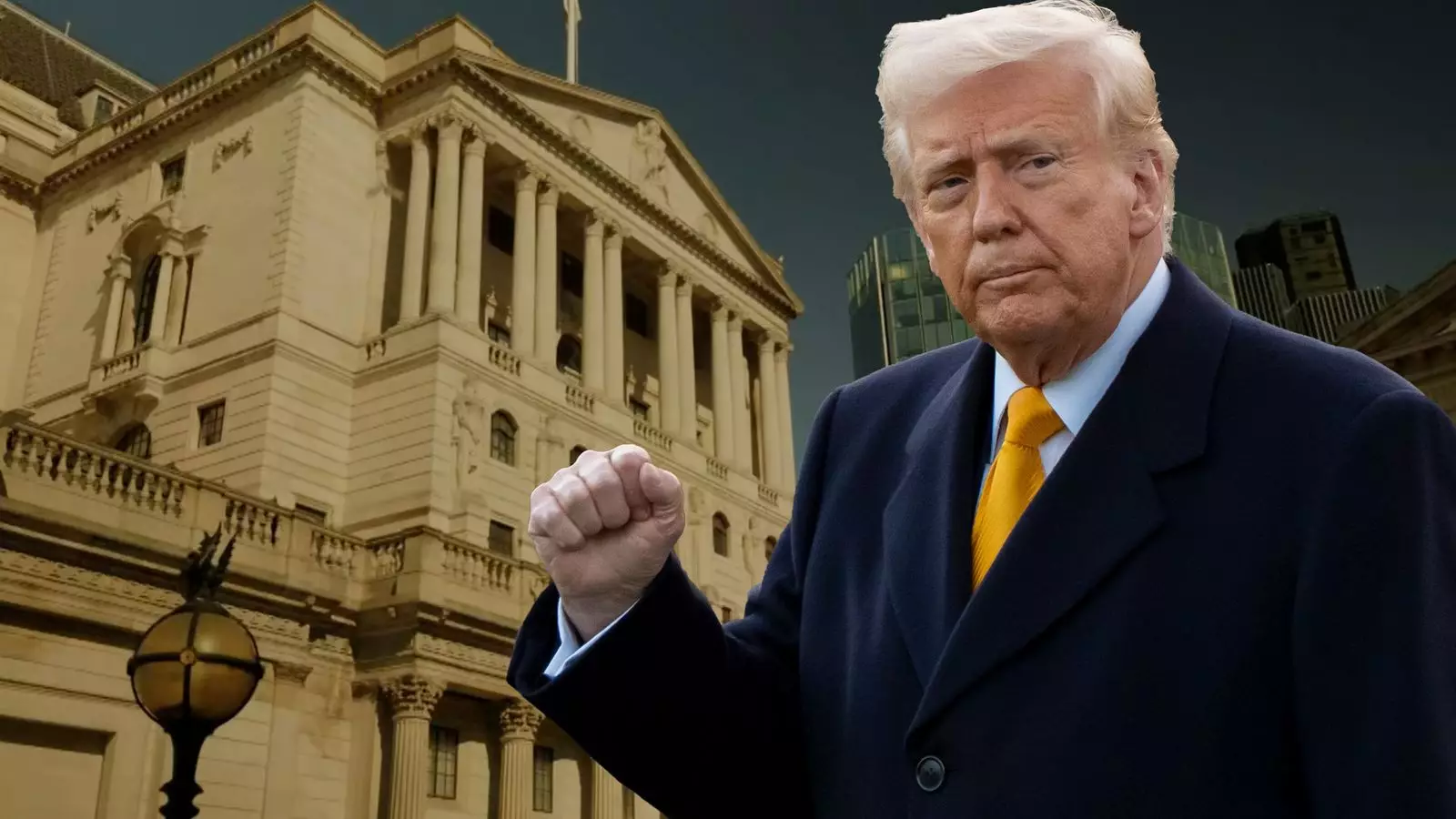The financial landscape is undoubtedly in a state of flux, with many investors now anticipating a dramatic shift in the Bank of England’s monetary policy. The current sentiment reflects a growing belief that an interest rate cut next month could be not just beneficial, but essential. At the heart of this expectation lies the multifaceted and ongoing trade war initiated by former President Donald Trump, which continues to reverberate throughout the global economy. With recent analyses indicating a pronounced likelihood of a reduction from 4.5% to 4.25% on May 8, the question arises: can the Bank of England afford to maintain the status quo in an era marked by unprecedented economic uncertainty?
Caught in the Crossfire: The UK’s Potential Advantage
Megan Greene, a member of the rate-setting committee, provides a compelling lens through which to view the delicate dance of trade relations. She argues that by refraining from retaliatory tariffs, the UK might position itself as an attractive destination for cheaper imports from Asia and Europe. This perspective is worth exploring, as it suggests that the UK could derive disinflationary benefits from the very turmoil that is challenging its economic foundations. While this theory holds merit, it also carries dangerous assumptions about the long-term stability of these price trends and the potential risks of becoming overly reliant on foreign markets for essential goods.
Her statement that “the tariffs represent more of a disinflationary risk than an inflationary risk” clashes with the prevailing narrative surrounding trade wars. Greener pastures may not be on the horizon if the global economic framework continues to splinter under the weight of nationalism and protectionism. A steady influx of cheaper goods could temporarily placate inflation, but does it also risk undermining local production and compromising economic sovereignty?
The Heavy Hand of Rising Inflation
Moreover, Greene’s assertion comes at a time when inflation is expected to rise, driven largely by increased energy prices and corporate tax hikes. The Bank faces a paradox: it must balance aggressive rate cuts against the looming specter of inflation, which restricts its toolkit designed to bolster growth. If inflation continues to mount unchecked, the Bank may find itself boxed into a corner, constrained by its own policy decisions. This predicament mirrors the challenges faced by the U.S. Federal Reserve, which has recently adopted a cautious approach as domestic inflation concerns loom, compounded by tariffs that have thrown traditional economic indicators into disarray.
The Global Picture: A Cautious Consensus
Internationally, the economic ramifications of Trump’s trade war have prompted other central banks, particularly in the Eurozone, to cut rates more decisively. This paints a stark contrast to the UK’s hesitance. The dispassionate pragmatism demonstrated by the European Central Bank serves as a lesson; swift decisions can provide necessary support in tumultuous times. Yet, the fear of domestic inflation stalks policymakers everywhere, including the U.S., where Trump’s open criticism of the Federal Reserve’s leadership underscores a chilling unease in the political and financial spheres. When the political arena becomes so intertwined with monetary policy, the repercussions can be severe, potentially threatening economic stability just when it is most needed.
Political Pressure and the Path Forward
Chancellor Rachel Reeves’ imminent discussions in Washington about establishing a trade agreement with her U.S. counterpart highlight the desperate need for a unified front against the chaos of the trade wars. Engaging in substantive dialogue could reduce the immediate pressure on the UK economy, allowing for more creative fiscal strategies without the backdrop of crippling tariffs. As the clock ticks down to the Bank of England’s announcement, the call for an interest rate cut grows louder—not just as an act of desperation but as a prospective catalyst for resilience in the face of overwhelming challenges.
In essence, the question is not merely whether the Bank of England will yield to market pressures and cut rates but rather whether it has the political will and foresight to do so in a manner that actively supports a recovering economy, mindful of the pitfalls of complacency. This moment is pivotal; the decisions made will echo far beyond the confines of financial markets, shaping the future economy for generations to come.


Leave a Reply